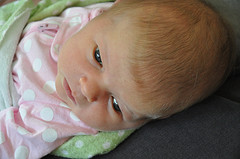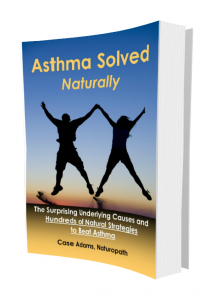Polycyclic Aromatic Hydrocarbons Cause Infant Wheezing
Research has determined that a pregnant mother’s breathing in fumes containing polycyclic aromatic hydrocarbons (PAHs) significantly increase the risk of wheezing in the child later in childhood.
Wheezing affects millions of children around the world, and this has been increased in regions with higher air pollution levels. Air pollution can be caused by industrial manufacturing, automobile exhausts, as well as many activities that occur around and within the home.
PAHs are one of those pollutants that often come from inside or around the home.
Polycyclic aromatic hydrocarbons are produced when fuels are partly burnt. This means that most fume-producing burning in the house produces PAHs. This includes wood fireplaces, coal-burning stoves, tobacco smoking, grilling and frying meats, diesel stoves, and incense (yes, incense).
In this article
257 children were tested
The researchers, from Kraków’s Jagiellonian University Medical College, followed 257 children from pregnancy (prenatal) for four years. Beginning in the third trimester of the mother, the researchers measured the air at the homes of the mothers and children, and scored the levels of PAHs in the indoor air. They also gave the children regular checkups during the four year period.
The researchers found that those mothers who had higher levels of polycyclic aromatic hydrocarbons in their homes during their pregnancy increased the rates of wheezing of their children by the age of three by 53%.
Even more concerning was the children breathing in PAHs at the age of three. Those who were exposed to PAHs at the age of three were over twice as likely to be chronic wheezers.
Other research confirms findings
These results are similar to another study from Jagiellonian University Medical College done with 335 infants. They were also followed from pregnancy through 3-4 years old. In this study, higher exposure to PAHs during pregnancy resulted in a 69% increased incidence of wheezing inside of two years old.
The mothers were all non-smokers in these studies.
Numerous studies on asthma and other types of allergies have found that children who wheeze are more likely to have allergies or asthma as they get older.
REFERENCES:
Jedrychowski WA, Perera FP, Majewska R, Camman D, Spengler JD, Mroz E, Stigter L, Flak E, Jacek R. Separate and joint effects of tranplacental and postnatal inhalatory exposure to polycyclic aromatic hydrocarbons: Prospective birth cohort study on wheezing events. Pediatr Pulmonol. 2013 Oct 24. doi: 10.1002/ppul.22923.
Jedrychowski WA, Perera FP, Maugeri U, Mrozek-Budzyn D, Mroz E, Klimaszewska-Rembiasz M, Flak E, Edwards S, Spengler J, Jacek R, Sowa A. Intrauterine exposure to polycyclic aromatic hydrocarbons, fine particulate matter and early wheeze. Prospective birth cohort study in 4-year olds. Pediatr Allergy Immunol. 2010 Jun;21(4 Pt 2):e723-32. doi:10.1111/j.1399-3038.2010.01034.x.
Adams C. ASTHMA SOLVED NATURALLY: The Surprising Underlying Causes and Hundreds of Natural Strategies to Beat Asthma. Logical Books, 2011.
















